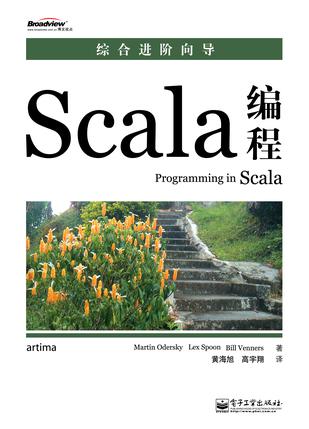[Jakarta Commons筆記] Commons Collections - Bag組
Posted on 2005-08-03 12:36 laogao 閱讀(2628) 評論(2) 編輯 收藏 所屬分類: On Java首先來看Bag組。
Bag
HashBag
BagUtils
Bag是在org.apache.commons.collections包中定義的接口,它extends java.util.Collection,而它的實現類都被放在下面的bag包中。之所以有這樣一組類型,是因為我們有時候需要在Collection中存放多個相同對象的拷貝,并且需要很方便的取得該對象拷貝的個數。需要注意的一點是它雖然extends Collection,但是如果真把它完全當作java.util.Collection來用會遇到語義上的問題,詳細信息參考Javadoc。
HashBag是Bag接口的一個標準實現。而BagUtils提供一組static的方法讓調用者獲取經過不同裝飾后的Bag實例。
還是舉例子來看:
/** Book.java */
package sean.study.commons.collections;
import org.apache.commons.lang.builder.ToStringBuilder;
import org.apache.commons.lang.builder.ToStringStyle;
public class Book {
private String name;
private String isbn;
private double retailPrice;
public Book() {
}
public Book(String name, String isbn, double retailPrice) {
this.name = name;
this.isbn = isbn;
this.retailPrice = retailPrice;
}
public String toString() {
return new ToStringBuilder(this, ToStringStyle.MULTI_LINE_STYLE)
.append("name", name)
.append("ISBN", isbn)
.append("retailPrice", retailPrice)
.toString();
}
public String getIsbn() {
return isbn;
}
public void setIsbn(String isbn) {
this.isbn = isbn;
}
public String getName() {
return name;
}
public void setName(String name) {
this.name = name;
}
public double getRetailPrice() {
return retailPrice;
}
public void setRetailPrice(double retailPrice) {
this.retailPrice = retailPrice;
}
}
/** BagUsage.java */
package sean.study.commons.collections;
import org.apache.commons.collections.Bag;
import org.apache.commons.collections.BagUtils;
import org.apache.commons.collections.bag.HashBag;
import org.apache.commons.lang.StringUtils;
public class BagUsage {
public static void main(String[] args) {
demoBagUsage();
}
public static void demoBagUsage() {
System.out.println(StringUtils.center(" demoBagUsage ", 40, "="));
// data setup
Book book1 = new Book("Refactoring Workbook", "7-5083-2208-8", 29.8);
Book book2 = new Book("J2EE Design Patterns", "7-5083-3099-4", 45);
Book book3 = new Book("Agile Software Development", "7-5083-1503-0", 59);
// create a bag
Bag myBag = BagUtils.typedBag(new HashBag(), Book.class);
myBag.add(book1, 360);
myBag.add(book2, 500);
myBag.add(book3, 170);
// calculations for a bag
double price1 = book1.getRetailPrice();
double price2 = book2.getRetailPrice();
double price3 = book3.getRetailPrice();
int book1Count = myBag.getCount(book1);
int book2Count = myBag.getCount(book2);
int book3Count = myBag.getCount(book3);
double totalValue = (price1 * book1Count) + (price2 * book2Count)
+ (price3 * book3Count);
// dispaly results
System.out.println("There are " + book1Count + " copies of "
+ book1.getName() + ".");
System.out.println("There are " + book2Count + " copies of "
+ book2.getName() + ".");
System.out.println("There are " + book3Count + " copies of "
+ book3.getName() + ".");
System.out.println("The total value of these books is: " + totalValue);
System.out.println();
}
}
以下是運行結果:
============= demoBagUsage =============
There are 360 copies of Refactoring Workbook.
There are 500 copies of J2EE Design Patterns.
There are 170 copies of Agile Software Development.
The total value of these books is: 43258.0
需要說明的是,以上的代碼僅僅為了演示如何使用Bag,實際應用不建議像這樣硬編碼。







